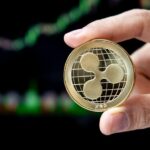After surging to unprecedented peaks in 2021, Pfizer Inc. (NYSE: PFE) faced extreme challenges in 2023, marking a significant downturn for the world’s largest drugmaker.
Amidst soaring sales and share prices driven by the global demand for COVID-19 products, the year draws to a close with Pfizer grappling with a substantial decline.
Following another 6.7% drop on December 13, the company’s shares hit a decade-low at $26.66. Notably, the year-to-date decline stands at approximately 48%, marking 2023 as Pfizer’s poorest annual performance since 1968—the starting point for available records of PFE’s stock market performance.
At the current price, PFE is sitting above a crucial support of around $26.06. Falling below this threshold would pave the way for the stock for further declines toward the next major support lines at $25.7 and $23.3.
Why is Pfizer having such a bad year?
In broad terms, 2023 turned into a highly challenging year for Pfizer’s stock because of a significant slowdown in demand for its COVID-19 products.
As the world’s recovery from the deadly pandemic picked up pace, the demand for COVID-19 vaccines and other treatments declined rapidly, leading to major sales and earnings blows for Pfizer and other drugmakers.
But the latest blow came on December 13 and was triggered by the drugmaker’s disappointing 2024 revenue and profit guidance, taking its shares to a 10-year low.
Investors unimpressed by 2024 forecast
Pfizer said on Monday, December 11 that it expects 2024 revenue of $58.5 billion to $61.5 billion, notably below Wall Street’s estimates of $63.17 billion.
The company also said it anticipates generating revenues of $5 billion from its Covid vaccine and $3 billion from its antiviral pill Paxlovid in 2024, amounting to a total revenue of $8 billion from coronavirus products.
That figure was significantly below analysts’ expectations of $13.8 billion, underscoring the slowdown in demand for its once-blockbuster medicines.
Meanwhile, the pharmaceutical powerhouse has projected adjusted earnings in the bracket of $2.05 to $2.25 per share, a figure that falls short of analysts’ predictions of an adjusted profit of $3.16.
This outlook includes Pfizer’s anticipation of a 40-cent per share impact stemming from financing costs linked to its imminent $43 billion acquisition of Seagen, a cancer drug developer set to finalize the deal officially on Thursday.
Further, the company hiked the target of its sweeping cost-cutting program by $500 million, bringing the expected total to $4 billion.
Buy stocks now with Interactive Brokers – the most advanced investment platform
Disclaimer: The content on this site should not be considered investment advice. Investing is speculative. When investing, your capital is at risk.









